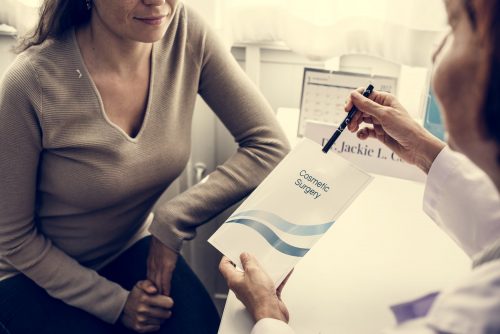
Recovery after plastic surgery is a critical step of the entire cosmetic procedure process. Depending on the type of surgery and individual patient, healing may take several weeks or even months to heal from a procedure fully. Experiencing some discomfort, swelling, and bruising during recovery is normal, but these symptoms can be managed with proper care and attention. Below are tips on properly caring for yourself and promoting healing after plastic surgery.
Getting Plenty of Rest
During the recovery period, a person needs to get plenty of rest. Doing so will help the body heal faster and reduce the risk of complications. People should avoid strenuous activities or excessive movement to avoid putting too much strain on their bodies. Regular naps and a full night’s sleep will help the healing process.
Before choosing where to have the surgery, patients are encouraged to consider how close to home the surgery will be, as being far away from home could cause stress and difficulty returning for follow-up appointments. Also, a person should visit their official site to get know-how of what to expect, like their recovery room and their post-operative care. With all these, you can get as much rest as needed for a speedy recovery.
Eating Healthy Foods
Eating healthy foods is a key part of post-operative healing and helps the body have enough nutrients to heal. Patients must focus on getting lean proteins, healthy fats, and complex carbohydrates while avoiding processed foods and refined sugars. Foods like fresh fruits and vegetables, lean meats and fish, nuts, seeds, and whole grains are all great sources of nutrition for healing after plastic surgery.
Drinking a lot of water is also something that shouldn’t be overlooked. Staying hydrated helps keep the body functioning optimally and flush out toxins that cause swelling or other side effects. Eating healthy foods will help with this, as many foods contain high levels of water, but drinking a lot of water also helps flush out toxins from the body and aid digestion.
Reducing Stress Levels
Stress can slow the healing process, so reducing stress levels during recovery is important. This can include activities like yoga, meditation, and other relaxation techniques that will help a person maintain a positive attitude and reduce tension in the body. Avoiding negative thoughts as much as possible is essential to promote overall well-being during recovery.
Taking some time away from work or other obligations while recovering can also help speed up the recovery. Another way to help reduce stress levels is taking short walks or engaging in light exercise. However, too much physical activity will cause complications and delay healing, so it is best to ask the surgeon when it is safe to start exercising. With proper rest and stress relief activities, a person’s body will be better equipped to heal quickly and effectively.
Taking Pain Management Measures
Experiencing discomfort and pain after plastic surgery is normal. To manage pain levels, talk to their surgeon about what type of medication is safe to take during recovery. The doctor’s recommendation could include things like over-the-counter medications and prescription drugs. If a person is experiencing severe pain, they should talk to the surgeon about other forms of pain management, such as acupuncture or physiotherapy.
In addition, a person must also check for any signs of infection during recovery. Signs can include redness, swelling, and drainage. Talking to the surgeon about these concerns helps prevent further complications from developing. Proper management of pain and infection symptoms will make a person’s plastic surgery recovery process smoother and shorter.
Mental Health Support
Having some anxiety or depression during the recovery process is normal. For this reason, a good support system will help people maintain their mental health and well-being. Talking to friends, family members, or even a therapist will be beneficial in helping to manage any negative thoughts and feelings that may arise during the recovery period.
Seeking professional help is always an option if needed. Mental health support will also help reduce stress and promote better physical healing. Taking care of psychological needs during plastic surgery recovery is just as important as managing physical concerns such as pain and infection control.
Recovering after plastic surgery requires great care and dedication to the healing process. Taking steps such as eating nutritious foods, reducing stress levels, managing pain, and seeking mental health support will help speed up recovery. With proper self-care habits in place during plastic surgery recovery, a person can expect to heal quickly and effectively.
Interesting Related Article: “Knee Replacement Surgery, How To Prepare”

